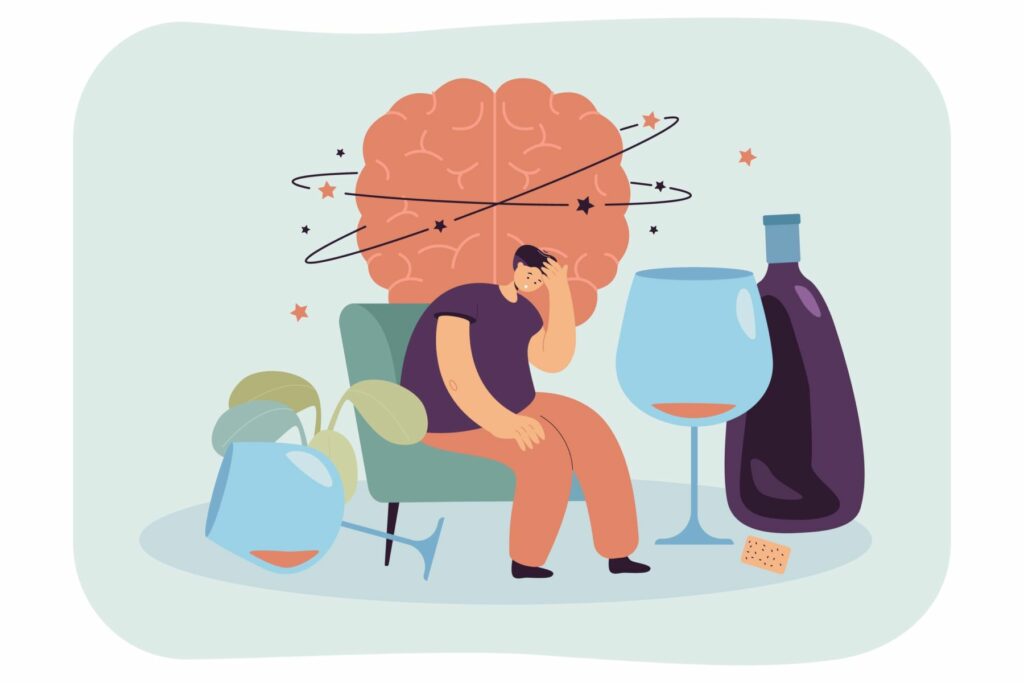Recognizing the Signs: Heavy Drinking vs. Alcoholism

In a world where alcohol consumption is widespread and socially ingrained, it’s vital to discern between heavy drinking and alcoholism, or if drinking is just a casual social activity. It can be challenging to recognize when alcohol has shifted from social fun to an isolating disruption in our lives.
This blog explores the distinctions between casual drinking, heavy drinking, and alcoholism, providing scenarios to help identify where your behaviors fit, and offering information on the benefits of substance abuse therapy in the journey toward recovery when needed.
Casual Drinking:
Casual drinking is a commonplace social activity where individuals consume alcohol occasionally and in moderation. Occasional drinking can be a part of social gatherings or celebratory events. While moderate alcohol consumption is generally considered acceptable, it’s crucial to be mindful of one’s limits to prevent potential negative consequences.
Heavy Drinking:
Heavy drinking transcends occasional or moderate alcohol consumption, indicating a pattern of behavior that may not necessarily indicate dependence, but poses health and social risks. This is where understanding the difference between a heavy drinker and an alcoholic becomes important.
Individuals engaged in heavy drinking may find themselves facing challenges such as impaired judgment, strained relationships, or disruptions in daily responsibilities. Recognizing heavy drinking involves an awareness of the impact of alcohol use on various aspects of life.
Alcoholism (Alcohol Use Disorder – AUD):
Alcoholism, or Alcohol Use Disorder (AUD), represents a chronic condition characterized by a compulsive need for alcohol, leading to physical and psychological dependence. Understanding the difference between a heavy drinker and an alcoholic is crucial here.
Those grappling with alcoholism experience a loss of control over their drinking behavior, with significant disruptions to their personal and professional life. It’s a complex condition that often requires the intervention of an addiction therapist and comprehensive treatment.
Heavy Drinking vs. Alcoholism Scenarios:
- Casual Drinking:
- Scenario: Enjoying a glass of wine with friends during a social gathering.
- Key Characteristics: Occasional, moderate, and socially integrated alcohol consumption.
- Heavy Drinking:
- Scenario: Consistently exceeding recommended alcohol limits, leading to strained relationships and work-related challenges.
- Key Characteristics: Repeated patterns of problematic alcohol use with noticeable negative consequences, differentiating a heavy drinker from an alcoholic.
- Alcoholism (AUD):
- Scenario: Inability to control drinking, experiencing withdrawal symptoms when not drinking, and neglecting major life responsibilities due to alcohol dependence.
- Key Characteristics: Chronic and compulsive alcohol use, physical and psychological dependence, and a need for professional intervention by an addiction therapist.
When to Seek Professional Support:
If you or someone you know is experiencing several signs of heavy drinking or alcoholism, reaching out to an addiction therapist is crucial. Substance abuse therapy can provide support, guidance, and personalized treatment plans to address the underlying issues contributing to substance abuse. Early intervention is key to improving outcomes and promoting a successful recovery journey.
Substance Abuse Therapy:
Understanding the signs of heavy drinking and alcoholism is a crucial first step. However, the journey towards recovery often involves seeking professional help. Substance abuse therapy plays a pivotal role in addressing the root causes of alcohol abuse, offering individuals the tools and support needed to build a healthier, more balanced life.
Substance abuse therapy often includes Cognitive-Behavioral Therapy (CBT) or Motivational Enhancement Therapy (MET), tailored to individual needs. Additionally, involvement in support groups such as Alcoholics Anonymous or SMART Recovery can be incredibly beneficial. Recognizing the signs early on and seeking appropriate support, including the help of an addiction therapist, can significantly impact an individual’s well-being.
Whether it’s modifying drinking behaviors or seeking substance abuse therapy, addressing alcohol-related concerns proactively is a step towards a healthier and more fulfilling life. If you or someone you know is struggling, seeking professional help from an addiction therapist is a crucial and commendable decision on the path to recovery.
Seeking professional help is a crucial and commendable decision on the path to recovery. If you are interested in seeing if one of our specialized Chicago therapists is the right fit for you, reach out for a consultation today.
This blog is made for informational and educational purposes only. It is not medical advice. The information in this blog is not intended to (1) replace a one-on-one relationship with a qualified licensed health care provider, (2) create or establish a provider-patient relationship, or (3) create a duty for us to follow up with you.



